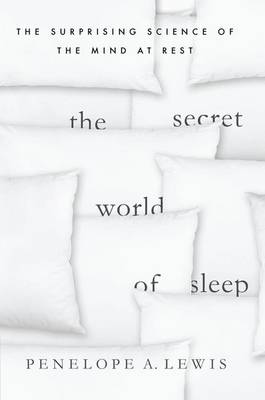
In recent years neuroscientists have uncovered the countless ways our brain trips us up in day-to-day life, from its propensity toward irrational thought to how our intuitions deceive us. The latest research on sleep, however, points in the opposite direction. Where old wives tales have long advised to "sleep on a problem," today scientists are discovering the truth behind these folk sayings,and how the busy brain radically improves our minds through sleep and dreams. In The Secret World of Sleep, neuroscientist Penny Lewisexplores the latest research intothe nighttime brain to understand the real benefits of sleep. She shows how, while our body rests, the brain practices tasks it learned during the day, replays traumatic events to mollify them, and forges connections between distant concepts. By understanding the roles that the nocturnal brain plays in our waking life, we can improve the relationship between the two, and even boost creativity and become smarter. This is a fascinating exploration of one of the most surprising corners of neuroscience that shows how science may be able to harness the power of sleep to improve learning, health, and more.
I'm a fan of pop science books (books that provide scientific information to lay people, usually in an entertaining way), so I requested a copy of this book through LibraryThing's Early Reviews program. Penelope Lewis is a neuroscientist who runs the Sleep and Memory Lab at the University of Manchester, according to her biography. Her book on sleep and memory is a quick and easy-ish read, though not nearly as fun as some of the other pop science books I've read. She really tries quite hard to distill the information down to small bites the average non-scientist can absorb easily - the information presented doesn't go too deep, chapters are very short, and they end in brief summaries that remind the reader about all the topics the chapter covered. She reports quite a bit about other scientist's research, but she mostly leaves herself out of it. It left me wondering about her - what does she do while running her lab? Is she conducting any research herself? How did she end up studying sleep and memory? I think pop science works best when the author injects some of his or her personality into the book and provides a human connection to the subject matter. Overall, a solid three stars - I liked it and found it worth reading.
Reading updates
-
Started reading
-
21 September, 2013:
Finished reading
-
21 September, 2013:
Reviewed
